Fresh fruit fast
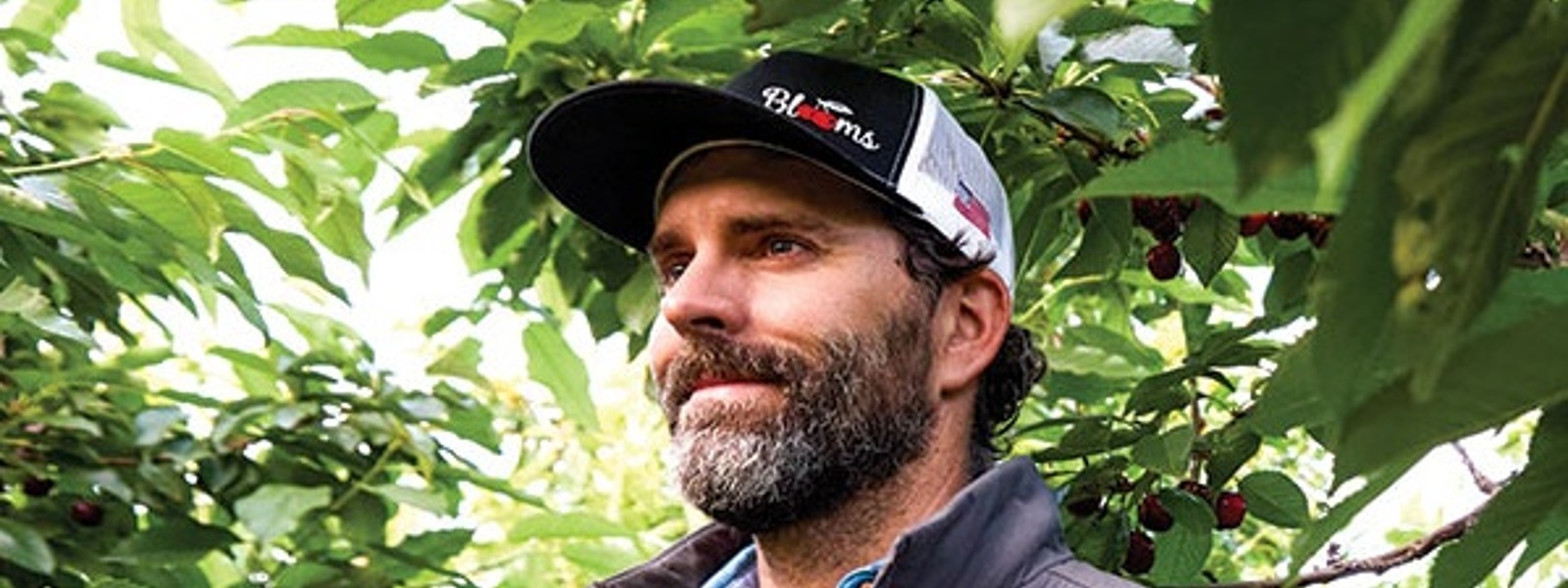
Spring 2024 California Bountiful magazine
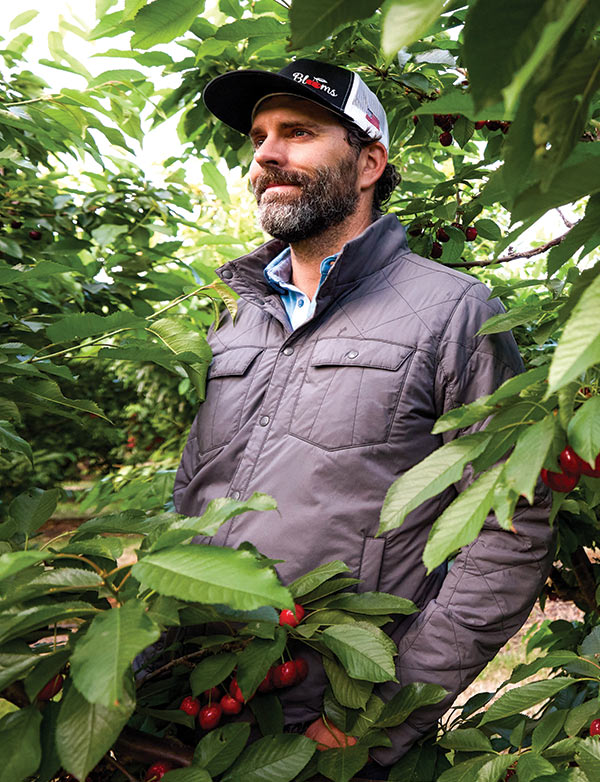
Farmer ships export-quality cherries across the country
Story by Ching Lee
Photos by Fred Greaves
Colleen White is serious about her food. When buying produce, the Sacramento resident describes herself as the type of shopper who scrutinizes everything. For example, she won’t buy oranges if she can’t smell a citrusy scent. Though she hunts for a good buy, she says she would pay a higher price for freshness and quality.
When she saw a Facebook post last year that Chinchiolo Farming Co. in San Joaquin County was taking orders for farm-fresh cherries, she jumped on it, paying for first dibs before the crop was even harvested. Store-bought cherries, she laments, “don’t taste like cherries a lot of times,” either because they weren’t picked at peak ripeness or because supply chain hiccups degraded the fruit.
“With how much everything is costing now, I want to make sure my dollars are going to something that I’m going to be able to eat, that is going to last as long as it can, that I’m going to get the most nutrients out of,” White says.
As a self-described cherry lover, White says the ones from the farm did not disappoint, as they were large, juicy and had the sweet-tart flavor she’d expect from cherries.
“They were some of the best cherries I’d ever had,” she says. “They were gone in less than two days at my house. That’s why I would buy them again. That’s why I’m waiting for the website to open up so I can pre-buy my cherries.”
Fourth-generation farmer James Chinchiolo, who runs the Lodi-based farm, is working to reach more people like White—U.S. customers who are willing to pay a premium for what produce marketers call “export-quality” fruit. Instead of shipping those cherries to foreign markets—which pay top dollar for them—he’s setting aside some of the farm’s exportable cherries and delivering them directly to people’s doorsteps.
“We’re providing the premium product that I’m accustomed to, that we know is here, but oftentimes, it gets exported to other markets,” Chinchiolo says.
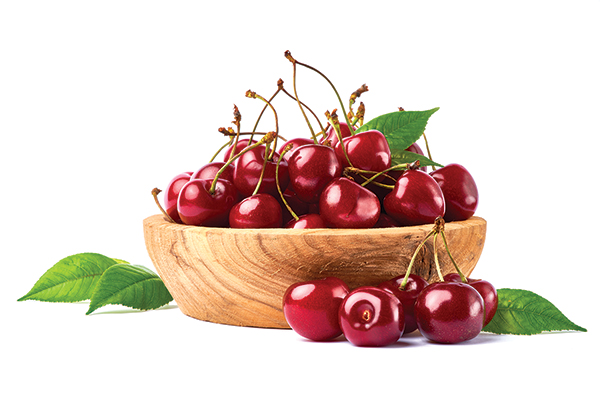
Pivot to direct sales
Nearly 30% of the state’s cherry crop is shipped—or, more accurately, flown—all over the world, with Canada, South Korea, Mexico and Japan being leading export destinations, according to the California Cherry Board. That’s about 2.8 million 18-pound cartons of the stone fruit last year.
Domestically, the Golden State remains the largest market for California cherries, gobbling up some 1.4 million cartons last year. Other top U.S. markets include New York, Florida, Texas and Pennsylvania.
Chinchiolo says the idea for his direct-to-consumer business spawned during the early days of the pandemic in 2020 when logistics challenges and supply chain disruptions led to concerns about whether airlines would be able to fly the highly perishable fruit to places such as Japan, Hong Kong and Korea.
“I thought, gosh, you better find another market for these cherries,” Chinchiolo recalls.
Pivoting to direct sales was a common move for farms with perishable goods during the pandemic. Some developed their own websites to take customer orders. Others partnered with farms that already sold subscription produce boxes, offering either on-farm pickup or home delivery.
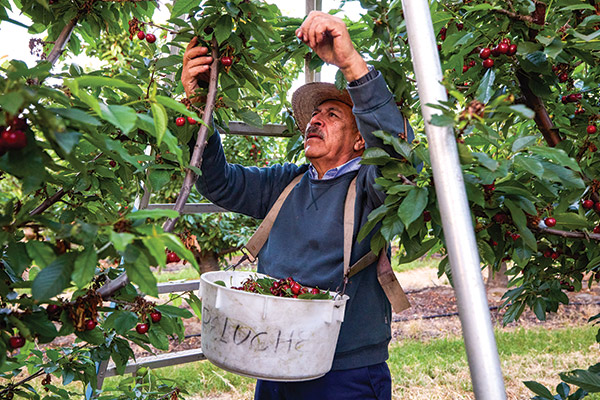
Demand for premium produce
While some of those farms have since gone back to marketing their crops through more traditional channels as life returned to normal, Chinchiolo has expanded his direct-sales cherry business. The bulk of his crop still goes to a traditional commercial packer, he says. But he’s also delivering to more homes and has maintained his U-pick business for people who want to visit the farm and pick their own cherries.
“The response back from the consumer was so positive, it was clear to me that a market exists to deliver people premium cherries,” he says, adding that he thinks buying directly from farms also helps his customers connect with modern agriculture.
To pull off the logistics of shipping people farm-fresh cherries that remain fresh when they get them, Chinchiolo looks to Jimmy Williams, the farm’s consulting operations manager. Before lending his expertise to Chinchiolo, Williams worked for years in export sales for a major cherry grower, packer, shipper and marketer in Stockton.
Williams says American consumers still get “very good cherries in terms of flavor and eating quality.” But he acknowledges export cherries tend to be larger, with the desired color, sugars and firmness to ensure they can make the trip and arrive in good condition.
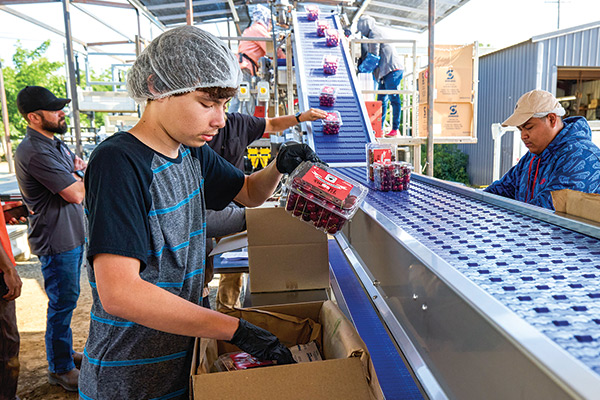
Packed and shipped the same day
Chinchiolo Farming ships cherries to all 48 contiguous states with a minimum order of $60 for a 4-pound box. The fruit is packed and shipped the same day it’s picked, with harvest season typically running from mid-May to mid-June. To ensure freshness, the boxes are insulated and packed with ice gel and sent by next-day or two-day air, depending on customer preference, for states east of Utah or Colorado. Shipments to the west and within California go by overnight FedEx truck.
The farm replaces orders that arrive in suboptimal condition due to shipping delays, which has been rare, Williams says, adding, “it’s basically 100% satisfaction guaranteed.” He says Chinchiolo’s direct-sales business has opened his eyes to what people are willing to pay for specialty products such as cherries.
Williams says if people pay a high price at the store for fruit that doesn’t taste very good, “they feel like they didn’t get their money’s worth.” Chinchiolo’s customers have shown that “people are willing to pay a premium as long as you send them fruit that merits the premium,” he says, adding that he hopes the farm sets a new trend.
Customer White says she thinks there are more people like her. She points to people who learned to cook during the pandemic “and who figured out that the better and fresher the ingredients are, the better your recipe turns out.”
She says she thinks selling directly to customers is “a viable way for smaller farms to get their produce to people without having to deal with wholesalers”—and it would allow farmers to get a better price for their crop.
“I want to get the best ingredients I can possibly get for my money,” White says, “and if that means buying directly from a family farmer, I don’t mind doing that, especially if the money is going into my local economy.”
Risky business
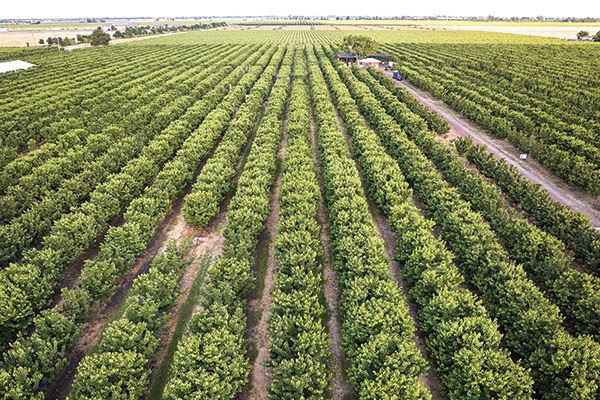
There’s an inherent risk to farming all crops. But cherries remain arguably one of the riskiest. That’s why Chinchiolo Farming won’t take presale orders until April 1, about a month and a half before cherry harvest.
“By then, the risk of frost has diminished significantly,” farmer James Chinchiolo says. “I want to make sure we have a viable crop before we start accepting people’s money.”
Frost can completely wipe out his crop, he says, which happened two years ago. Heavy rain before harvest could crack the skin of the cherries, making them unmarketable. A mild winter could cause poor yields, as most cherry trees need at least 700 hours of chilling temperatures below 45 degrees. Excessive summer heat when flower buds are forming can lead to cherry doubles and spurs, both of which are good to eat but typically sell at a reduced price.

